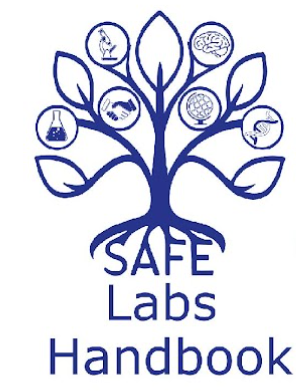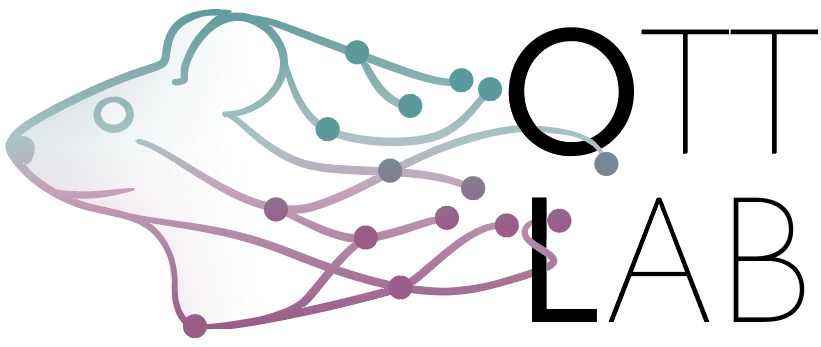
Our lab is committed to foster a positive, inclusive lab culture. Torben contributed to SAFE Labs, an initiative to start Safe and Equitable Labs by commiting to 30 action items distilled into a Lab Handbook. We have implemented these guidelines in our lab. You can find the public part of the Lab Handbook here.
SAFE Lab Commitments
SAFE Policies
I commit to publicly document …
… a diversity statement.
… the lab code of conduct: emphasise welfare, equity and integrity.
… green initiatives in the lab and any explicit rules related to sustainability.
… the common lab language and any institutional language requirements.
… my support for, and implementation of, the Lab Culture Handbook.
I commit to document …
… the procedure for reporting bullying and/or harassment.
… available resources to support mental health.
… the procedure for raising lab or inter-personal issues.
I commit to establish …
… a shared lab calendar for members to indicate if they are away, at conferences etc.
SAFE Teams
I commit to publicly document …
… a list of lab members and alumni.
I commit to document …
… my expectations for working hours, remote working, and vacation.
… an overview of the regular meetings in the lab, and my expectations for participation.
… the responsibilities of each lab role and the training provided.
… the onboarding procedure for new lab members.
… how equal access to lab resources across lab members is maintained.
I commit to establish …
… annual lab-wide feedback sessions.
… annual bilateral feedback and appraisal sessions for each lab member.
… annual lab-wide meetings to normalise failures.
… a mechanism to record key outcomes from each 1-on-1 meeting.
… a “PhD steering committee” to annually monitor progress and mediate feedback.
SAFE Careers
I commit to publicly document …
… which contributions constitute authorship on a scientific paper.
… the process for funding postdoctoral researchers.
… the visa-support available to overseas applicants.
I commit to document …
… my ambitions for the duration and publication outputs for each lab role.
… expectations and funding for conference/summer school attendance.
… guidelines for completing previous work after joining the lab.
… the procedure for requesting reference letters.
… the procedure for leaving the lab, including an exit interview.
I commit to establish …
… annual lab-wide meetings to review training and outcomes for “core skills”.
… a mechanism for sharing lab management updates.
… an objective and equitable interview process.
Diversity Statement
We believe that diversity is a resource to harness, and we strive to create a psychologically safe environment where disruptive points of view are valued. Thus, to foster a diverse and inclusive environment, we hire according to institutional affirmative action policies; we review the institutional rules for maternity and paternity leave when negotiating a contract; we discuss any cultural needs at onboarding, and we encourage lab members to share and mark on the lab calendar crucial cultural events and festivities; finally, we promote diversity in science by selecting journal club papers from a diversity of voices. We hope that these policies will encourage individuals from different cultural, socioeconomic, gender, and geographical backgrounds to join. Women and members of a minority group can contact the institute’s women’s adviser for guidance and financial support regarding specific challenges in their careers.
Code of Conduct
All lab members are expected to maintain a professional attitude of integrity, accountability, and mutual respect in all interactions and endeavours while upholding high standards of scientific rigor and collaboration. Examples include respecting each other’s points of views and contributions to discussions, being timely for meetings, and actively engaging in each other’s presentations. Everyone commits to maintaining an inclusive environment marked by compassionate behaviour and free from offensive conduct, particularly regarding gender, race, sexuality, or disability. Lab members are free to voice their ideas, wishes, or concerns without risking negative consequences ensuring a psychologically safe environment. The lab language is English. Any professional conversation, oral and written, during work activities must be in English. Nonthless, some administrative exchanges are in German and the institute offers assistance in learning the German language.
Sustainability
The lab strives to minimise energy consumption and waste production. We identified three main areas of impact: travel, recycling and economical use of equipment.
Travel: We encourage sustainable transport options both for long-haul travel and for daily commute. For long-hauls trips, when funding allows, the lab covers the most sustainable travel option. PhD students enrolled at Humboldt University have local public transport included, and employee benefits include reduced public transport subscriptions.
Recycling: To minimize the environmental impact of lab waste, we avoid mixing lab waste and regular waste. We recycle regular waste according to local regulations.
Economical use of equipment: when possible and not detrimental our instruments, we turn off unused equipment and lighting.
Authorship policy
Authorship vs acknowledgement is not always obvious in advance, but typically all contributors to a paper are included as authors, where contribution is broadly defined by CRediT Taxonomy. For example, developing a new technique for a project, or contributing previously unpublished data/figures would constitute authorship. Conversely, routine experimental work, sharing basic analysis code, or proof-reading a paper would not constitute authorship. Authorship is ultimately decided in discussions between the PI, project lead(s), and any other potential authors. Although the scientific process is unpredictable, authorship will be discussed when a lab member begins, or becomes involved with, a project. Whenever possible, we publish a matrix of contributions at the end of each paper.
Funding and visa support
Available funding depends on current grants and project goals and will be discussed with each researcher during hiring and onboarding. In general, funding for graduate students and postdoctoral researchers is available for at least 3 years. Typically, I will ask postdocs and graduate students, where appropriate, to apply for funding. I guide and support the grant writing process. This helps to crystalise their project approach and hypotheses, are valuable additions to a researcher’s CV, and can provide additional funding for professional activities (e.g. travel). Visa availability and support is a complex topic since this depends on the type of position and country of origin. Please consult these information and the HU’s international office. It might be possible to cover visa cost, which can be discussed during interviewing, hiring, and onboarding.
